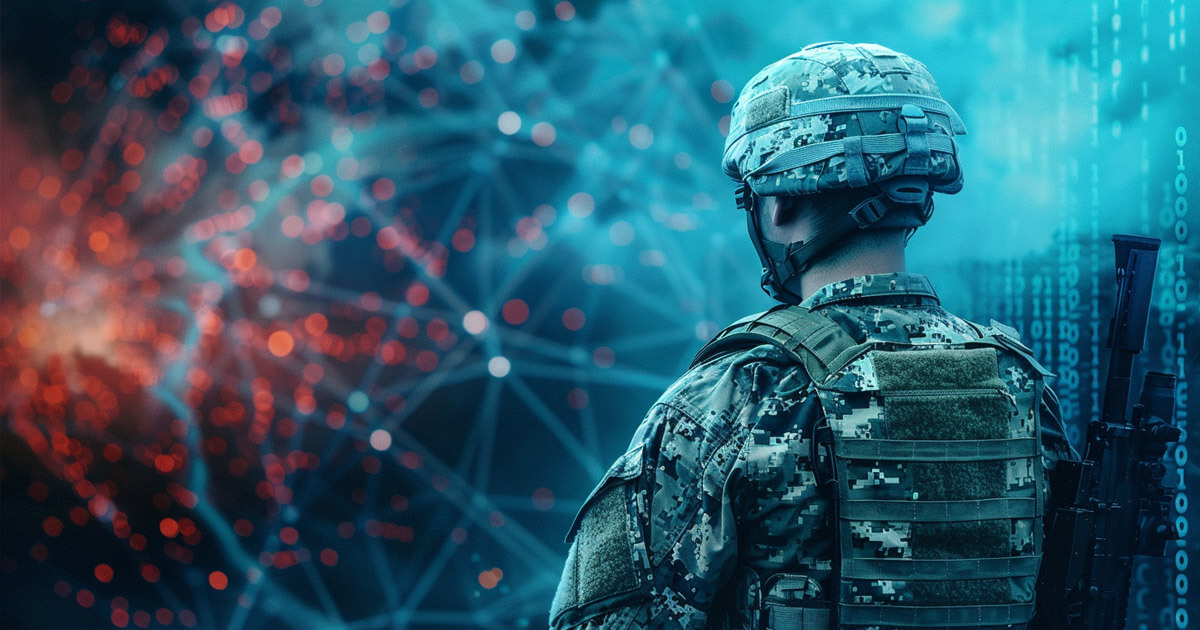
The U.S. House Armed Services Committee’s latest draft National Defense Authorization Act (NDAA) for fiscal year 2025 includes key provisions for exploring the role of blockchain technology in national security and defense applications. A draft approved by the committee was sent to the full House and to the Senate Armed Services Committee for consideration advanced it to the Senate floor July 9.
There stands that,
“The committee recognizes the potential use of blockchain technology for broader national security purposes within the defense landscape.”
The first mention of blockchain technology in the NDAA occurred in fiscal year 2018, marking the first recognition of this technology within national defense law. That year, the US House of Representatives added this two blockchain-related amendments to the annual defense spending bill. This amendments directed the Department of Defense (DoD) to investigate the potential offensive and defensive cyber capabilities of blockchain technology and report back within 180 days.
The DoD met this requirement by producing a report that examined blockchain’s cybersecurity capabilities, assessed its use by the U.S. government and critical infrastructure networks, and evaluated its vulnerabilities to cyberattacks. This indicated a growing government interest in applying blockchain technology for purposes such as cybersecurity and supply chain management.
Blockchain for defense
This month, the Senate Armed Services Committee continued to explore the potential of blockchain technology for national security and defense applications. That of the committee FY 2025 NDAA Report includes guidance related to blockchain, recognizing its potential to enhance the cryptographic integrity of defense supply chains, improve data integrity, and reduce the risks of data manipulation by adversaries.
The Secretary of Defense has been tasked to explore blockchain use cases for national security purposes, with an emphasis on secure, transparent, accountable, and auditable data related to supply chains. A briefing on these applications is required before April 1, 2025.
This briefing specifically covers a number of key areas:
- An assessment of the benefits and risks of blockchain implementation in supply chain management.
- An analysis of the current state of blockchain adoption within the DoD and the defense industrial base.
- A plan for pilot programs or research initiatives that explore the use of blockchain in national security applications, such as supply chain management and cybersecurity.
- An analysis of blockchain research and development activities by foreign countries, especially China and Russia.
- Organizational recommendations to promote the development of blockchain within the Ministry of Defense, including the feasibility of creating a coordinating office or knowledge center.
- Recommendations for legislative or regulatory action to improve supply chain transparency and audibility through blockchain technology.
The Ministry of Defense had already been there explore blockchain applications, culminating in a 2024 contract with blockchain startup Constellation. This initiative marked an important step in using blockchain to improve the cybersecurity of backend systems and secure data transfers between commercial airlift partners of the Defense Transportation System.
Bitcoin for violation
In addition to the continued exploration of blockchain applications, the Department of Defense may soon consider Bitcoin as part of its strategic initiatives. Jason Lowery, the author of “SoftWar: A Novel Theory on Power Projection and the National Strategic Significance of Bitcoin,” revealed that members of Donald Trump’s campaign administration have sought his expertise on Bitcoin.
Lowery has highlighted Bitcoin’s potential for national security and proposed the formation of a “US Hash Force,” involving agencies such as the Department of Energy (DoE) and the Department of Defense (DoD). Specifically, he proposes that the US Cyber Command (USCYBERCOM) or the US Strategic Command (USSTRATCOM) establish a Combined Hash Force Component Command (CHFCC).
This initiative includes collaboration with FVEYE and NATO countries to counter the digital warfare efforts of adversaries such as Russia and China. This proposal aligns with the Senate Armed Services Committee’s directive to explore blockchain use cases for national security, and reflects a broader government interest in leveraging blockchain technology for defense and cybersecurity.
Current Government Role in Blockchain Adoption in the Military
The recent guidance from the Senate Armed Services Committee highlights a growing recognition of blockchain’s potential in military and defense applications. The committee’s proactive stance includes plans for pilot programs, assessments of the benefits and risks of blockchain for supply chain management, analyzes of its current industry and foreign adoption, and feasibility and cost estimates. This evolving exploration reflects a strategic push to leverage blockchain technology for enhanced national security and defense capabilities.
While the SEC has been allowed to regulate through enforcement, the incumbent administration has played a notable role in promoting the adoption of blockchain technology within the defense sector. Through legislative measures, strategic contracts and interagency initiatives, the government has laid the foundation for the integration of blockchain technology into national security and public services.
The Senate directive to explore blockchain for military applications, the approval of military contracts with blockchain companies, and the House of Representatives’ passage of the FIT 21 bill indicate legislative support for blockchain technology in this area. However, digital assets running on blockchain have a less obvious future among Democrats than Republicans who follow the new RNC platform for 2024.







Leave a Reply